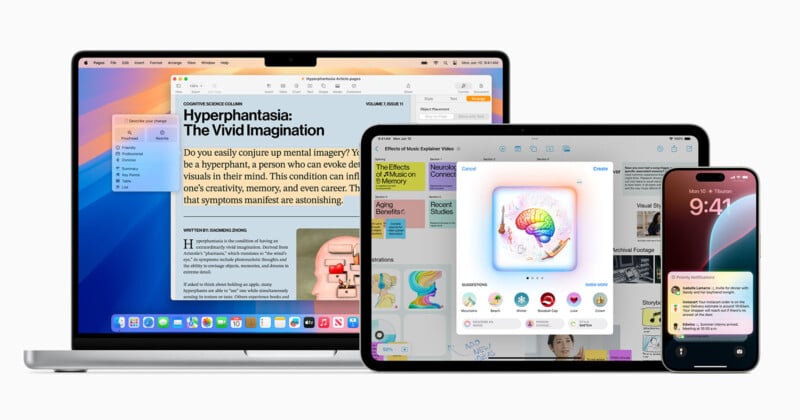![]()
As seen with competing artificial intelligence platforms and features, Apple Intelligence will utilize some computational power in the cloud. However, perhaps more than any of the competition, Apple prioritizes on-device processing enabled by the company’s robust and efficient silicon. This means more privacy and security, but also that some not-that-old devices will be left behind as Apple steps into the AI age.
Apple Intelligence will launch in beta this fall on a select group of devices. On the iPad and Mac side, any device running an Apple M1 or newer chip will support Apple Intelligence, including iPad Pro, iPad Air, MacBook Air, MacBook Pro, iMac, Mac mini, Mac Studio, and Mac Pro.
On the iPhone, the situation is significantly more limited, with only the iPhone 15 Pro and iPhone 15 Pro Max receiving Apple Intelligence’s beta at launch.

In a footnote, Apple adds that Apple Intelligence will only work on devices with Siri and device language set to U.S. English at launch and that some features, additional languages, and more platforms will “be coming over the course of the next year.”
While it is possible Apple will expand Apple Intelligence to older platforms after the beta launches, the additional platforms could just as easily refer to yet-to-be-announced devices, like the iPhone 16 family of smartphones that will undoubtedly arrive sometime this fall and M4-powered Macs.
This is a notably different approach than the one companies like Samsung and Google have taken with the rollout of their cutting-edge AI features. Those two have launched new AI features on the latest devices and then quickly added them to some older models.
However, again, Apple is leveraging its internal silicon to perform as much AI computation as possible on the user’s device. This means more usability in a wider range of scenarios and, as Apple puts it, industry-leading privacy. The tradeoff is that this approach significantly limits Apple Intelligence’s implementation on insufficiently powerful devices.
That said, it is rather surprising not to see the iPhone 15 and 15 Plus make the cut. Apple heavily touted the performance of the A16 chip in the standard iPhone 15 models at its launch event nine months ago, but it seems it’s not quite powerful enough to keep up with Apple’s AI ambitions.
